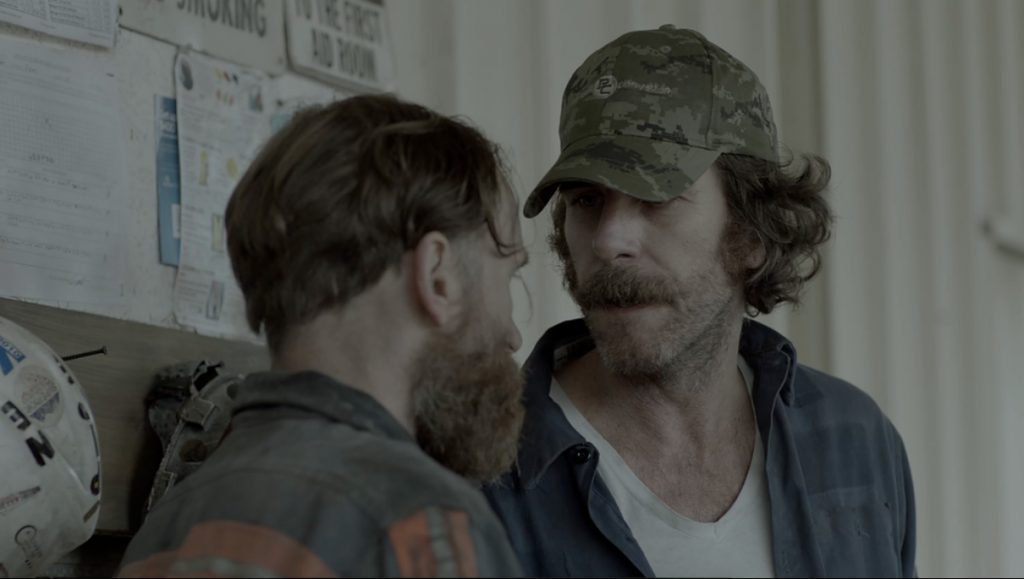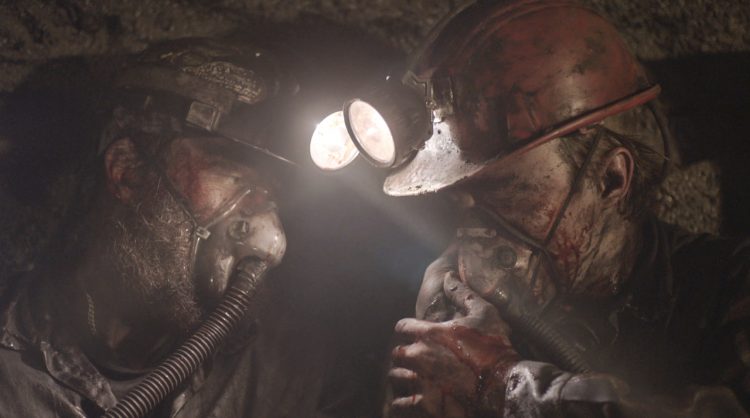There is a scene in the haunting early minutes of Eddie Mensore’s impressive Mine 9 that deftly captures the plight of the American laborer in just a few strokes: Forced to choose between working in unsafe conditions or shutting down a dangerous mine, the miners unanimously choose the former. It’s a scene reminiscent of the one in A Perfect Storm where George Clooney and his crew decide to sail through the hurricane. But with one key difference: While the crew of the Andrea Gail celebrate their reckless decision with hugs and high fives, the miners of Mine 9 cast their votes grimly, driven as they are by grim necessity. It’s the difference between an honest, personal film and a Hollywood movie.
And there’s much that is honest and personal in Mine 9, from picnics on dry leaves and truck doors kicked shut to twinkling coal dust and trembling machines filmed in an actual West Virginia coal mine—all of it edited and scored with a feel for the rhythms of working-class life (Mensore, it turns out, hails from West Virginia).
If anything, the atmosphere recalls the ’70s blue-collar realism of Deer Hunter and A Woman Under the Influence. But nowhere more than during an early false alarm, when John (played with trancelike intensity by Clint James) mumbles the Lord’s Prayer behind a hastily erected curtain until one of his colleagues starts chuckling. Nervously? Mockingly? With relief? The actor seems not to know, because neither would the character.
This moment shows how effectively Mensore employs the familiar narrative tropes of a claustrophobic thriller as a pretext for exploring the inner lives of people he clearly admires. People who provide 30% of this country’s electrical power at great personal risk and for negligible gain.

For unlike so many films with blue-collar characters, Mine 9 neither condescends nor caricatures. And if the ending seems a bit sentimental, it can be forgiven as resulting from real feeling, rather than from the kind of emotional manipulation that made long stretches of Avengers: Endgame unwatchable. Best of all, it’s immediately followed by candid statements from actual West Virginia coal miners.
Although the disaster story and special effects were credible and engaging, I couldn’t help wishing the same cast and crew had shot a film in which the tunnel holds, but the miners’ health collapses over time. After all, the working-class tragedy is rarely sensational. More often it’s a tale of slow decline in the style of Dylan’s North Country Blues. But ultimately I think Mensore was wise to do what he did and tell a story that engages a broader audience while remaining true to his roots and purpose.
The results are admirable. If you hurry, you can catch the film today at Quad Cinema. If not, I hope and pray it will be coming soon to a theatre near you.

